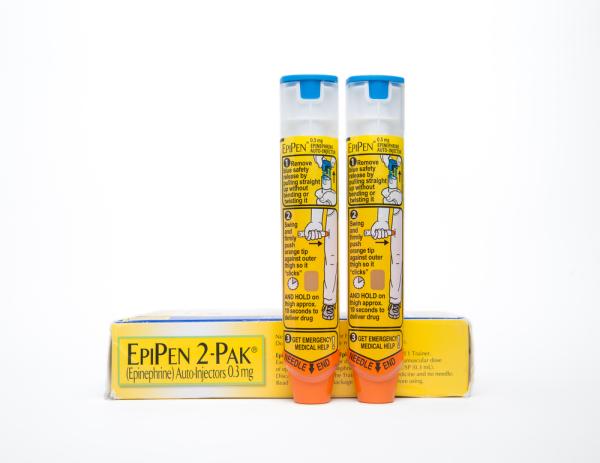While the price of EpiPens have increased dramatically to unaffordable levels for many, at least someone is working on behalf of aggrieved consumers to make the purchase of the potential life-saving drug more worthwhile.
That someone is a west coast pharmacist, one apparently sympathetic to those shouldering the high cost of the drug injectors by seeking to identify the drug's effective shelf life. And at at cost of roughly $600 per pair, knowing how long they will work can translate into real savings for families.
The pharmacist, F. Lee Cantrell, the director of the California Poison Control System in San Diego, determined that EpiPens are effective far longer – even four years or more – than the expiration date states on their labels. That, of course, is great news, except for one essential fact: while they would most likely work, no one will take the risk to officially guarantee they will work.
The bottom line: Cantrell's research effectively determined that an expired EpiPen can work as a back-up – if a newer model isn't available. Which means for those who must treat an allergic reaction, using an expired version is better than not using it at all.
 “If my kid’s having a life-threatening reaction, and I had no alternative, absolutely I would use it without hesitation,” said Cantrell, speaking to Reuters. “I don’t think there’s a physician in the world who would rebut that.”
“If my kid’s having a life-threatening reaction, and I had no alternative, absolutely I would use it without hesitation,” said Cantrell, speaking to Reuters. “I don’t think there’s a physician in the world who would rebut that.”
Mr. Cantrell and his team tested 40 EpiPens in all (including nine EpiPen Jrs) that had exceeded their expiration dates, ranging from 1 month to 50 months past the stamped date. As shown in the accompnying tables (courtesy: Cantrell study) all but two were at least 84 percent potent with sufficient concentrations of epinephrine to be considered effective in preventing anaphylactic shock.
Epinephrine, also known as adrenaline, is effective as a muscle relaxer while opening airways to aid breathing for those experiencing severe allergic reactions.
The team's research was published Tuesday in the Annals of Internal Medicine.
"Our data show that EpiPen products can retain substantial amounts of epinephrine well beyond their expiration dates," the researchers wrote in their study. "Although we observed declining concentrations of epinephrine over time, we expect that the dose available 50 months after expiration would still provide a beneficial pharmacologic response."
The researchers warned, however, that if it's observed through the product's window that the drug has changed color to brownish-yellow, it should not be used regardless of date.
Since Mylan, the manufacturer, recommends that the product be replaced annually to ensure the most effective and potent dose is on hand, many families have trouble doing so and find the high cost of EpiPens difficult or simply unaffordable.
So while its good to know that if push came to shove, and an expired injector would be effective in a potential crisis, the news falls short of a unconditional recommendation by both Mr. Cantrell or the manufacturer, given the high stakes involved, to use one past its expiration date. Indeed, in an written statement, Mylan says the stamped expiration date is last day its product is "safe and effective."
 Given their findings Mr. Cantrell's team recommends that Mylan take another look at officially extending the product's shelf life.
Given their findings Mr. Cantrell's team recommends that Mylan take another look at officially extending the product's shelf life.
"We conclude that the process for establishing expiration dates for EpiPens should be revised and that, in the setting of outpatient anaphylaxis without other therapeutic alternatives, patients and caregivers should consider the potential benefits of using an expired EpiPen."
Apparently Mylan – which was highly criticized last year for hiking the price of its two-pen pack to $600, from $100 in years past – can understand the need for this re-evaluation. The manufacturer has "filed an application with the U.S. Food and Drug Administration for a new EpiPen formulation, which would extend the product’s shelf life," Reuters reports.




